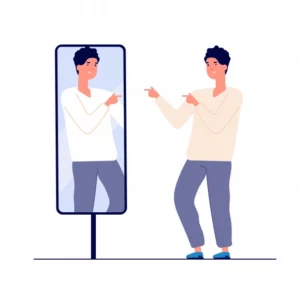Sometimes you let a little lie slip in your life just because the reality is too uncomfortable to bear? According to recent research published in the journal Philosophical Psychology, you’re not alone. Researchers have identified four elements of self-deception, which appear to be extremely widespread and predictable. According to this study, there are four stages that we go through when we tell ourselves lies:
1. Reorganizing Your Thoughts
The researchers identify the first self-deception approach as belief reorganization. One may convince himself of something true when it aligns with his personal beliefs. In a press release, a philosophy professor and research co-author Albert Newen says that if a father is sure that his kid is a good student, and then the son comes home with lower marks than expected, he may initially think that the topic isn’t that significant or that the teacher didn’t clarify the material properly.
2. Choosing Facts by Purposeful Action
The following technique outlined in the study is what Newen and his co-author, Francesco Marchi, Ph.D., refer to as “selecting facts by intentional action.” This entails avoiding people, places, and/or things that may generate cognitive dissonance by providing evidence contrary to your ideas. In the aforementioned father-son scenario, this point may be represented by the father missing a parent-teacher discussion.
3. Having Doubts about Validity
When you weaken someone’s credibility, it’s natural to mistrust them, which is why it’s the third method highlighted in this study. Indeed, “Seeing is believing,” and without visual (or other concrete) confirmation of anything, it’s far simpler to dismiss uncomfortable truths.
4. Creating Facts from Ambiguity
Finally, the authors allude that creating facts from an ambiguous condition of events may be one of the issues.
This entails misinterpreting a circumstance in a way that easily fits the tale you’ve previously made up in your brain. March explains, for example, if the friendly mathematics professor softly hints that the son is not succeeding, and the father would have anticipated a straightforward declaration in the event of difficulties, the father may perceive the substantial compassion and delicate description as a favorable appraisal of his son’s ability.
Marchi and Newen were curious about the tactics we use to deceive ourselves and why we do it in the first place.
What is their theory?
What Motivates Us to do It?
It maintains our self-image, or ego, and keeps us motivated.
Newen writes, these are not evil behaviors, but part of humans’ basic cognitive equipment to protect their existing perspective of themselves and the world, adding that this cognitive tendency is disastrous in times of radically new circumstances that need quick adjustments in behavior.
The Main Point
Most of us would prefer to think we’re true to ourselves and don’t tell ourselves lies for the sake of denial or convenience. However, according to this study, it is not only frequent, but we all do it in the same manner. So, the next time you suspect you’re hiding the truth from your inner self, keep an eye out for those four apparent indicators.














Leave a Reply